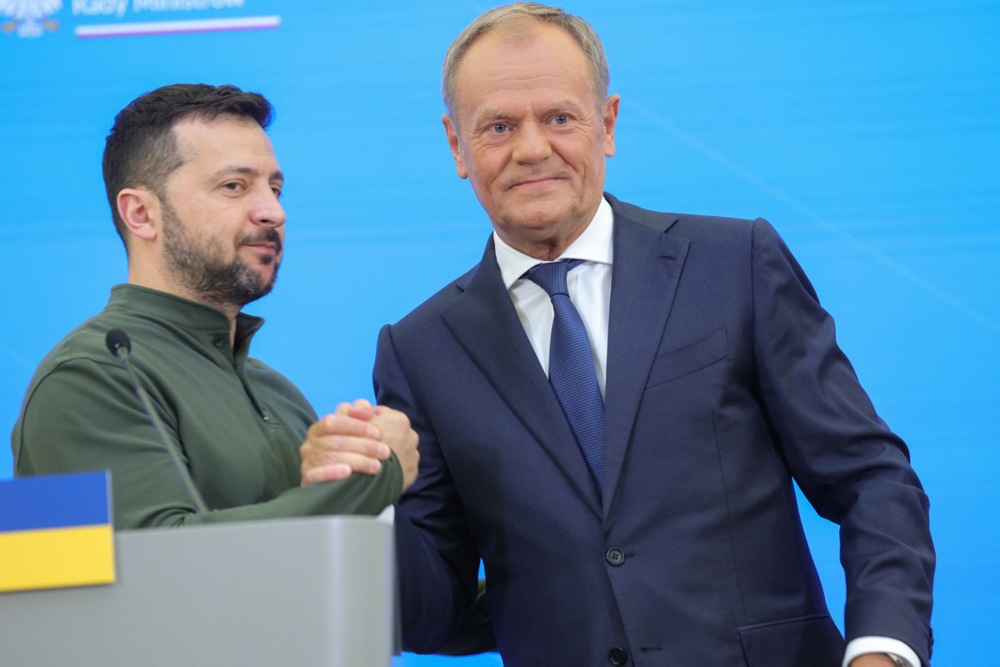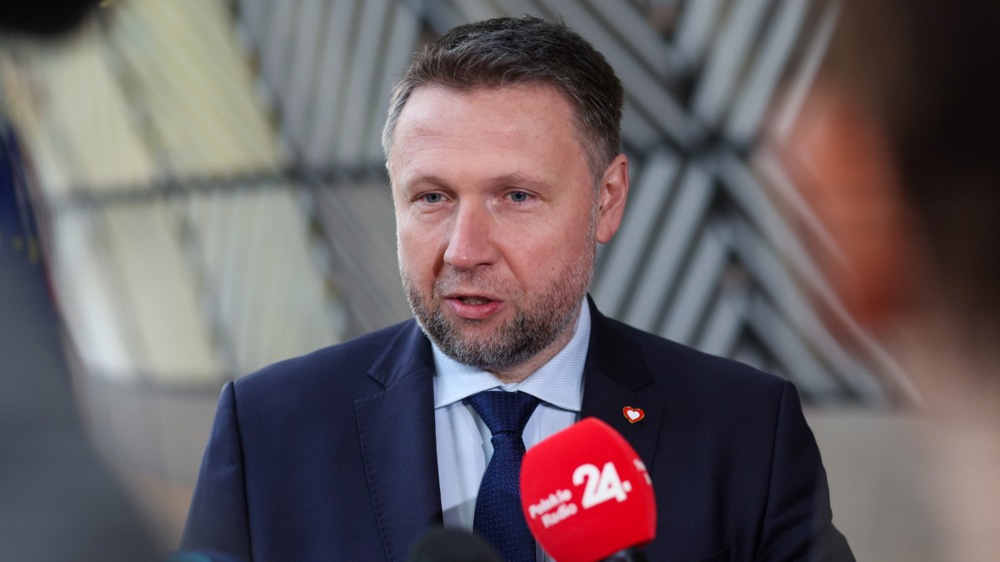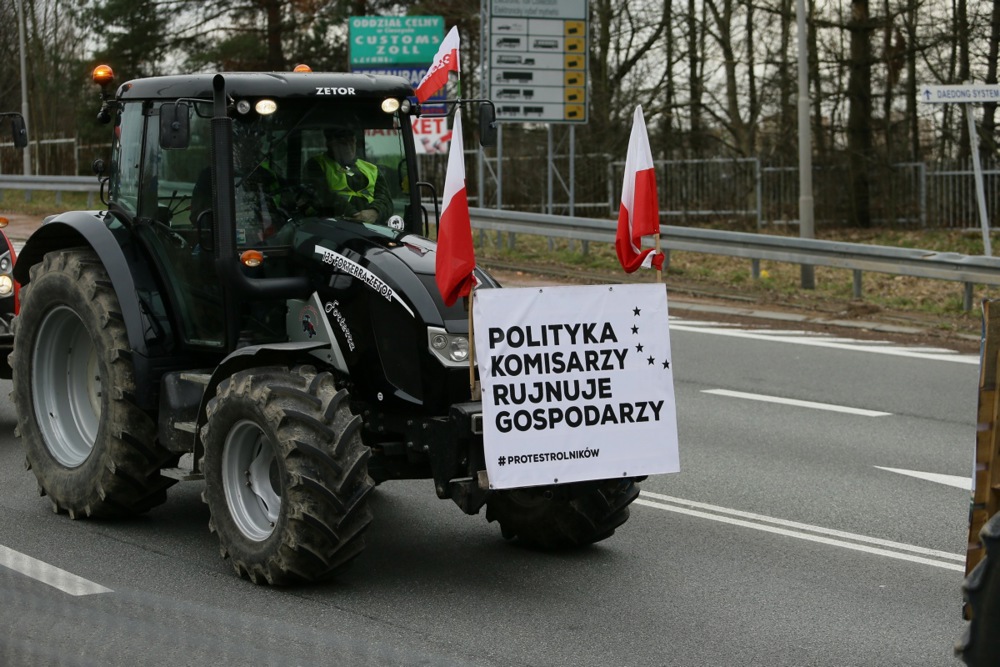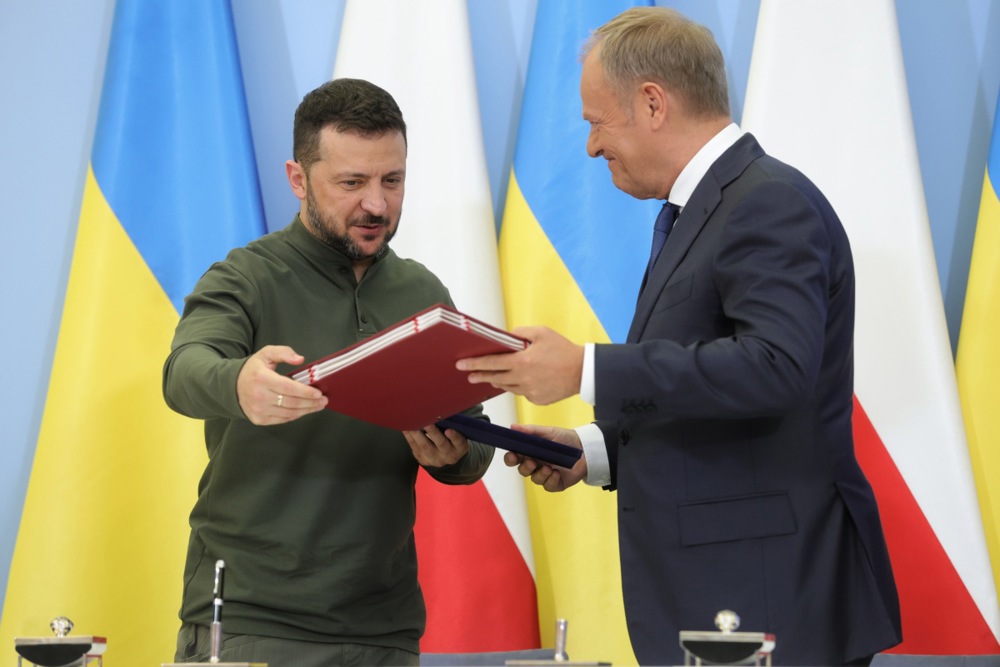Poland’s Deputy Prime Minister and defence minister Władysław Kosiniak-Kamysz has said his country will not agree to Ukraine becoming a member of the European Union until Kyiv accepts responsibility for the Volhynia massacre during the Second World War.
Kosiniak-Kamysz, who also leads the Polish People’s Party (PSL), part of Prime Minister Donald Tusk’s ruling coalition, was referring to the incident in which more than 100,000 ethnic Poles were killed by Ukrainian nationalists allied to Nazi Germany.
The massacre took place in Volhynia and Eastern Galicia, areas that were then part of German-occupied Poland and now mostly lie in modern Ukraine, and occurred between 1943 and 1945, allegedly perpetrated by members of the Ukrainian Insurgent Army (UPA).
In Poland, the killings have been categorised as genocide but Ukraine has rejected that description. As a result the issue has regularly caused tension between the two countries.
“Let me state clearly: Ukraine will not join the European Union if the Volhynia issue is not resolved,” Kosiniak-Kamysz told commercial TV Polsat on July 23.
“There will be no open borders and there will be no trade exchange at the current level if the Volhynia issue is not resolved.
“We want Ukraine to develop, but we cannot leave unattended a wound that has not healed. Issues regarding the genocide in Volhynia remain unresolved,” added Kosiniak-Kamysz.
The Deputy PM did not say what it would take for Ukraine to resolve the issue but Poland has been pushing Kyiv to allow the exhumation of Polish victims buried on Ukrainian territory and to end the honouring of UPA leaders who allegedly orchestrated the massacre.
Kosiniak-Kamysz’s remarks seemed to jar with the recent co-operation deal signed by Poland and Ukraine in which Poland envisaged the possibility of shooting down Russian rockets over Ukrainian territory, even though NATO has since distanced itself from that idea.
The PSL leaders’s stance appeared to be a return to the line taken by the previous Conservative (PiS) governing administration.
It had pushed hard for the exhumation of an estimated 55,000 Polish and 10,000 Jewish victims who, according to Poland’s Institute of National Remembrance (IPN), “still lie in death pits in Volhynia, waiting to be found, exhumed and buried”.
Despite Poland’s strong support for Ukraine with both military and humanitarian aid amid the war with Russia, Kyiv has not acted decisively in allowing the exhumations to go ahead.
Ukrainian President Volodymyr Zelensky did attend a joint ceremony during the 80th anniversary of the massacre in 2022 and made a statement acknowledging the pain felt by Poles.
Still, Ukrainian officials and politicians have continued to assert that Poles were also involved in military and para-military actions in which many Ukrainian civilians were killed.
Poland has been an advocate of Ukraine joining the EU and, in December 2023, EU leaders agreed to open accession negotiations with Kyiv.
The ultimate decision on whether to allow the country to join the bloc must be unanimous among all Member States. Therefore Polish objections to Ukraine’s stance regarding the massacre and Hungary’s dispute with Kyiv over the ethnic Hungarian minority’s rights in the Carpathian region of Ukraine could delay proceedings.
Regarding domestic Polish politics, Kosiniak-Kamysz’s PSL, which is allied with the Liberal Poland 2050 party in the Third Way alliance, has recently opposed the proposed liberalisation of abortion legislation, causing considerable tension with both Tusk’s party and the other Liberal and left-leaning elements of the ruling coalition.
On July 20, the Deputy PM said Tusk was only PM because his party supported him and added that the PSL would not be “bullied” into backing either abortion on demand or the rights of single-sex couples to adopt children.
His remarks came in response to attacks on the offices of PSL MPs who voted against the decriminalisation of abortion in a vote held on July 12.
The scale of the dispute within the ruling coalition has not been lessened with The Left and Tusk’s Liberal KO parties insisting that the abortion issue will be voted on in parliament once again in the autumn of this year.
Some opposition MPs, such as the Confederation party’s Przemysław Wipler, have backed the PSL in the media. He told Polsat that his party and the PiS may be willing to vote for a constructive no confidence vote in Tusk and to make Kosiniak-Kamysz the prime minister in a government that they accepted would be dominated by the PSL.
Commentators have acknowledged that was unlikely before the presidential election due in May 2025, when the PSL will have to decide whether to back Parliament Speaker Szymon Hołownia and maintain the Third Way alliance with his Poland 2050 party, or field its own PSL candidate.





